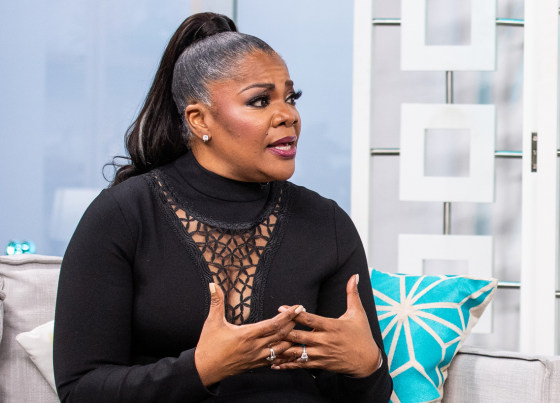A federal judge has denied Netflix's second motion to dismiss a race and gender discrimination lawsuit from comedian Mo'Nique, who alleges in the suit that the $500,000 the streaming service offered her in 2017 for a standup special "wreaked of discrimination" and "perpetuated the pay gap suffered by Black women" and that her business dealings with Netflix "ended with a blacklisting act of retaliation."
“Mo’Nique plausibly alleges that, after she spoke out and called her initial offer discriminatory, Netflix retaliated against her by shutting down its standard practice of negotiating in good faith that typically results in increased monetary compensation beyond the ‘opening offer’ and denying her increased compensation as a result," said Judge Andre Birotte Jr. Wednesday, according to court documents. "While Netflix argues that the novelty of Mo’Nique’s claim and the absence of on-point legal authority for it should bar her retaliation claims outright, the Court disagrees."
News of Birotte Jr.'s recent denial of Netflix's motion to throw out Mo'Nique's case, allowing the lawsuit to move forward, was first reported by Deadline.
"Today's ruling is an important victory for Hollywood talent who, just like all other workers, need protections against retaliation if they rase concerns about pay discrimination during the hiring process," said her attorney, David deRubertis, in a statement. "Employers in the entertainment industry need to take pay discrimination concerns seriously, fix them if the concerns have merit, and never retaliate against those who have the courage to speak up about equal pay.”
In a 2019 suit, the comedian and Oscar award-winning actress argues that Netflix approached her "with a discriminatory low-ball offer" in comparison to her colleagues, particularly those who are white and male.
"Despite Mo’Nique’s extensive résumé and documented history of comedic success, when Netflix presented her with an offer of employment for an exclusive stand-up comedy special, Netflix made a lowball offer that was only a fraction of what Netflix paid other (non-Black female) comedians," the lawsuit said.
The lawsuit cited offers for other comedians, including alleged $70 million deals, $60 million deals, $20 million deals and $16 million deals with Eddie Murphy, Dave Chapelle, Ellen DeGeneres, and Jeff Dunham respectively.
According to the suit, Mo'Nique, whose real name is Monique Hicks, attempted to renegotiate Netflix's offer, however, Netflix "refused to engage" in a renegotiation process.
After Mo'Nique called for a boycott of Netflix in 2018, a year before she filed a lawsuit against the company, comedian Wanda Sykes said she had also been low-balled by the company.
"@moworldwide, thank you for speaking out. @netflix offered me less than half of your $500k. I was offended but found another home," tweeted Sykes.
Sykes, whose stand-up special "Wanda Sykes: Not Normal" was released by Netflix last year, told Variety that she decided to collaborate with the streaming platform because "they moved that comma."
Mo'Nique's attorneys say that are not only pursuing the case on the comedian's behalf, but to address the gender pay gap. Black women earn 61 cents for every dollar a white man earns, which leads to a lifetime loss of more than $2 million, according to the National Women's Law Center.
"The pay gap for Black women cuts across the economic spectrum affecting low-paid workers and highly compensated ones alike," reads the lawsuit. "Unfortunately for Mo’Nique and many other women of color, their challenges when speaking up about pay gap inequality are all the greater because they are met with skepticism, not empathy, when they ask for more money."
Mo'Nique echoed this sentiment in a statement after the lawsuit was filed, saying she was advocating for those who've dealt with pay discrimination.
"I can confirm that today I filed a pay discrimination lawsuit against Netflix," Mo'Nique wrote on Instagram in November. "I had a choice I could make: I could accept what I felt was pay discrimination or I could stand up for those who came before me and those who come after me. I chose to stand up."
Netflix declined to comment, however, in a statement last year, a spokesperson said the company cares “deeply about inclusion, equity and diversity” and takes “any accusations of discrimination very seriously.”
“We believe our opening offer to Mo’Nique was fair — which is why we will be fighting this lawsuit,” the spokesperson said.


